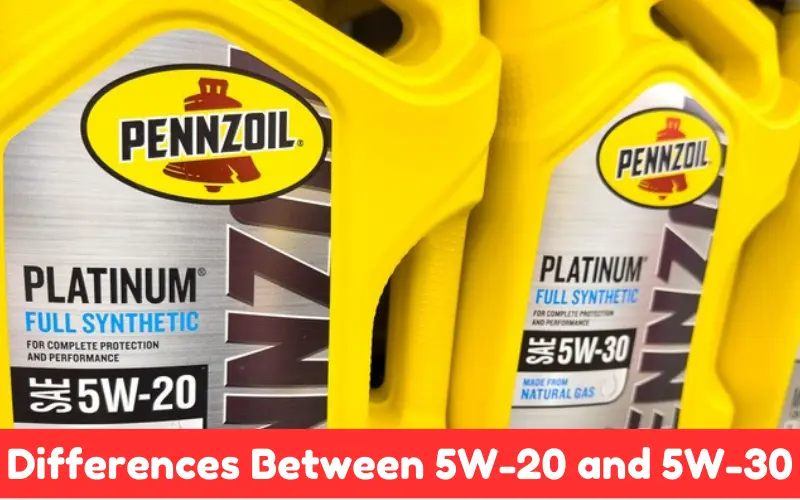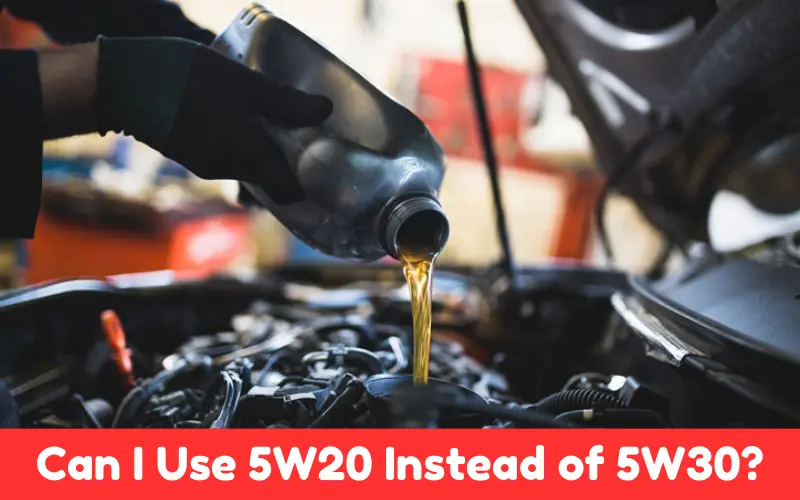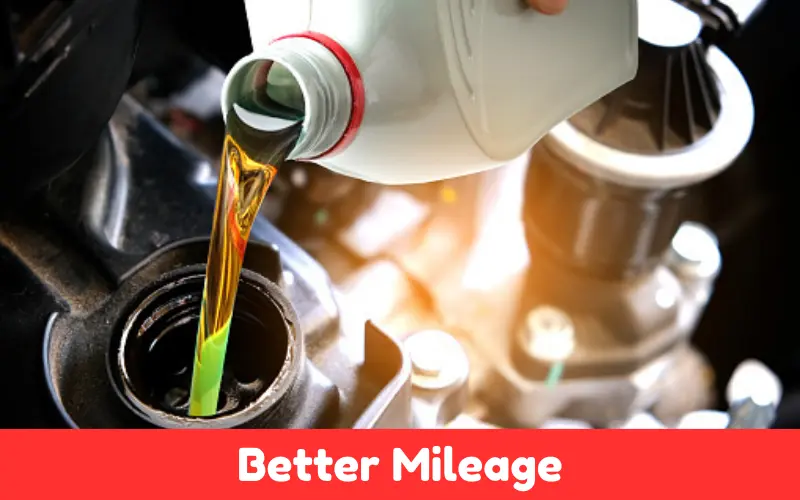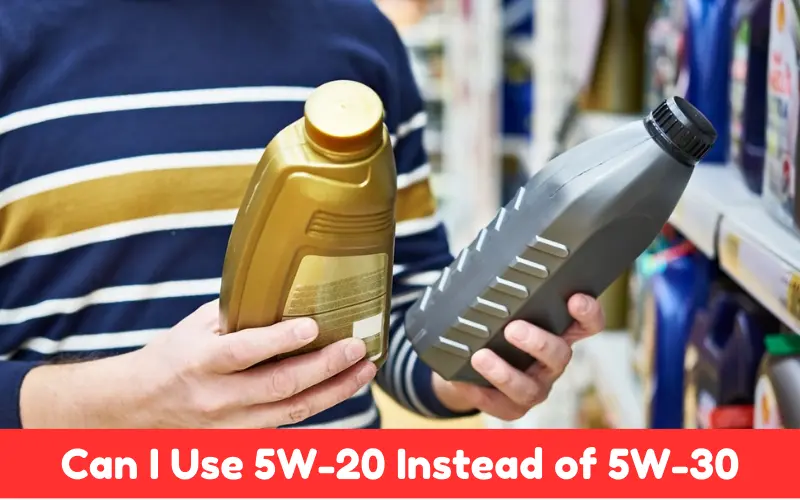Next to air filtration, choosing the right type of motor oil is perhaps the most critical factor in the maintenance of your vehicle. You might have asked yourself, “Can I use 5W20 instead of 5W30?”
More than ever before, car owners are faced with an increasing number of choices for car part maintenance, and engineers are constantly touting better technology and smaller tolerances in their products.
Let us demystify the comparative differences between today’s mainstream oils, 5W20 and 5W30.
Article Summary
Understanding Motor Oil Viscosity
Motor oils are rated by viscosity, the measure of how resistant they are to flow (for example, 5W20 or 5W30).
The “W” stands for winter (how the oil performs in cold temperatures), and the number before the W indicates the viscosity at low temperatures, with the number after the W indicating the viscosity at high temperatures.
- 5W20: This oil is thinner at operating temperatures.
- 5W30: This oil is slightly thicker at operating temperatures.
Manufacturer Recommendations
Most car manufacturers say they use a certain type of engine oil because the oil tests they do show that ordinary car engines run well and smoothly with this special oil. Their manufacturers also design their engines toe to follow the oil’s design specifications.
Differences Between 5W20 and 5W30
- Thickness: 5W20 is thinner than 5W30 at higher temperatures.
- Fuel Economy: Thinner oils, such as 5W20, can slightly improve fuel economy because they offer less wind resistance to moving parts in your engine.

- Protection: Thicker oils, like 5W30, provide better protection under most normal, high temperature, high stress conditions because they have a more consistent viscosity.
Can I Use 5W20 Instead of 5W30?
The answer depends on several factors:
Manufacturer’s Specification
Nothing can replace checking your vehicle’s owner’s manual on this. It often sets out the manufacturer’s recommendations that you should stick by.
So if it states the perfect mate for your car is 5W30, then that is probably the oil grade that will keep it on the road for longer with the lowest amount of damage and fuel wastage.
If the owner’s manual is vague, as it normally is, then a 5W30 like Elf 100200 is fine and certainly safer than using a 5W20.
In most climates and when under load, it would just not offer the safeguard that the grade specified in 5W30 typically places on an engine.

Climate
If your area tends towards extreme cold temperatures, then 20 is thinner at low temperatures, so you may need 5W20. In hot climates, 30 stands up better to the heat, so you should opt for 5W30.
Driving Conditions
It won’t matter much around town or for all season driving. However, for towing, weight handling, and performance driving, the preference is 5W30.
Potential Risks
Using an oil that is not recommended can lead to several issues:
- Engine Wear: Thinner oil might fail to provide proper lubrication, causing wear.
- Warranty Problems: If your car’s under warranty, using the wrong type of oil might invalidate it.
- Performance Issues: You might notice decreased performance or efficiency.
What Happens If You Put 5W20 Instead of 5W30?
Driving with 5W20 instead of the recommended 5W30 would have some implications for the sort of car we’re talking about primarily. 5W20 is thinner than 5W30 at operating temperature.
Benefits:
- Better Mileage: Thinner oil, such as the 5W20, never really caused a dramatic bump in mileage, but could reduce drag in the engine a little bit.

Risks:
- Less Protective: In hot temperatures or when carrying a very heavy load, a 5W20 will offer less protection than a 5W30 and could result in elevated engine wear.
- Warranty Problems: Using a non-recommended oil viscosity are grounds for the vehicle’s warranty being invalid.
- Performance Problems: Your motor could have been operating poorly, especially in hot climates or, even more seriously, during high stress times.
This isn’t an issue if you occasionally switch from a 5W30 to a 5W20, but it’s a good idea to stick to the manufacturer’s recommendation if you want your engine to perform at its best and last as long as possible. Consult your vehicle’s owner’s manual or a mechanic before making any changes.
FAQs On Can I Use 5W20 Instead of 5W30
Can I Mix 5W20 and 5W30 Oil?
Avoid mixing different viscosities of oil. This practice doesn’t damage your engine immediately but will likely create inconsistent oil film thickness and protection. It’s okay to use whatever oil viscosity your vehicle manufacturer recommends.
What Happens If I Use the Wrong Oil Viscosity in My Engine?
Using the wrong oil viscosity can lead to engine car seating, reduced lubrication, increased engine wear, and, in some cases, the expiration of your car’s warranty. The car’s thumb is to check the manufacturer’s recommendations for your car.
Does Manufacturer’s 20 Oil Improve Fuel Economy?
Using a thinner oil can better the True MPG scores by a small amount, mainly because thinner oil will have less drag on the moving engine parts. But the trade-off is a small reduction of engine protection.
Is 5W30 Better for High Performance Engines?
Because it’s a little thicker to start (the ’30’), it produces greater wear protection for high performance engines or those accessed in hotter ambient temperatures. It also retains its viscosity under a wider range of conditions as long as the application isn’t strictly low temperature. 5W30, then, is the right choice isn’t cause it can be used at both higher temperatures and under slightly more demanding circumstances than 5W20.
Can I Switch Back To 5W30 After Using 5W20?
Sure, if it’s not a super high mileage vehicle, you can switch from 5W20 it’s up to 5W30. As with regular oil changes, remember to remove all the old oil before pouring in new. Always err on the side of caution. Check your owner’s manual or consult a professional.
Conclusion
Although the two oils can perform the same tasks, the two formulations are designed to perform best in different conditions. Follow the specific recommendations from your vehicle’s manufacturer to optimize performance and ensure your vehicle is getting what it was designed to receive.
In a pinch, ask a reputable mechanic. There are countless different cars and driving conditions, and a mechanic will know best for your specifics.

